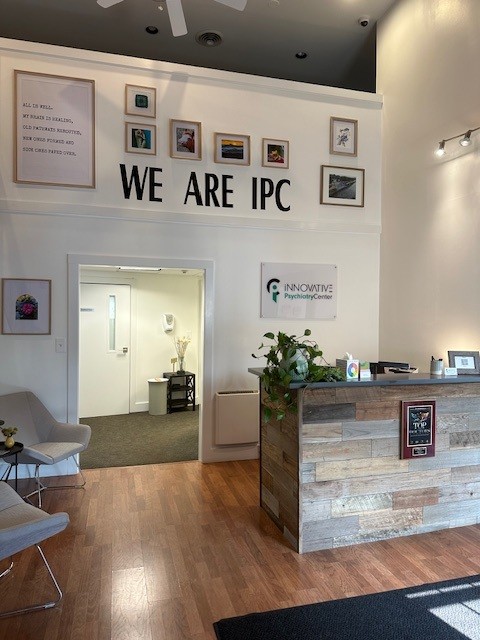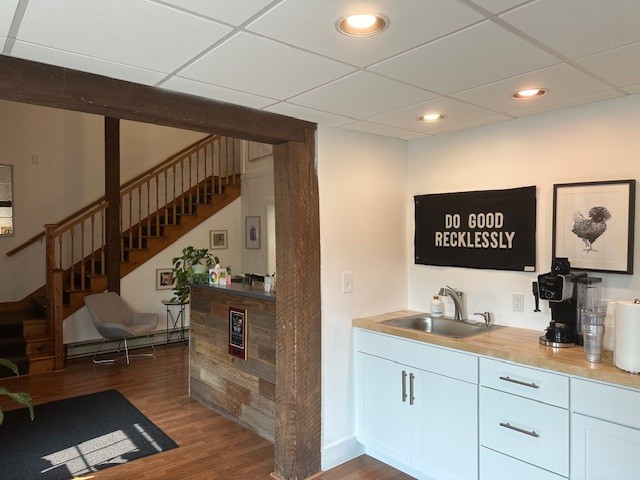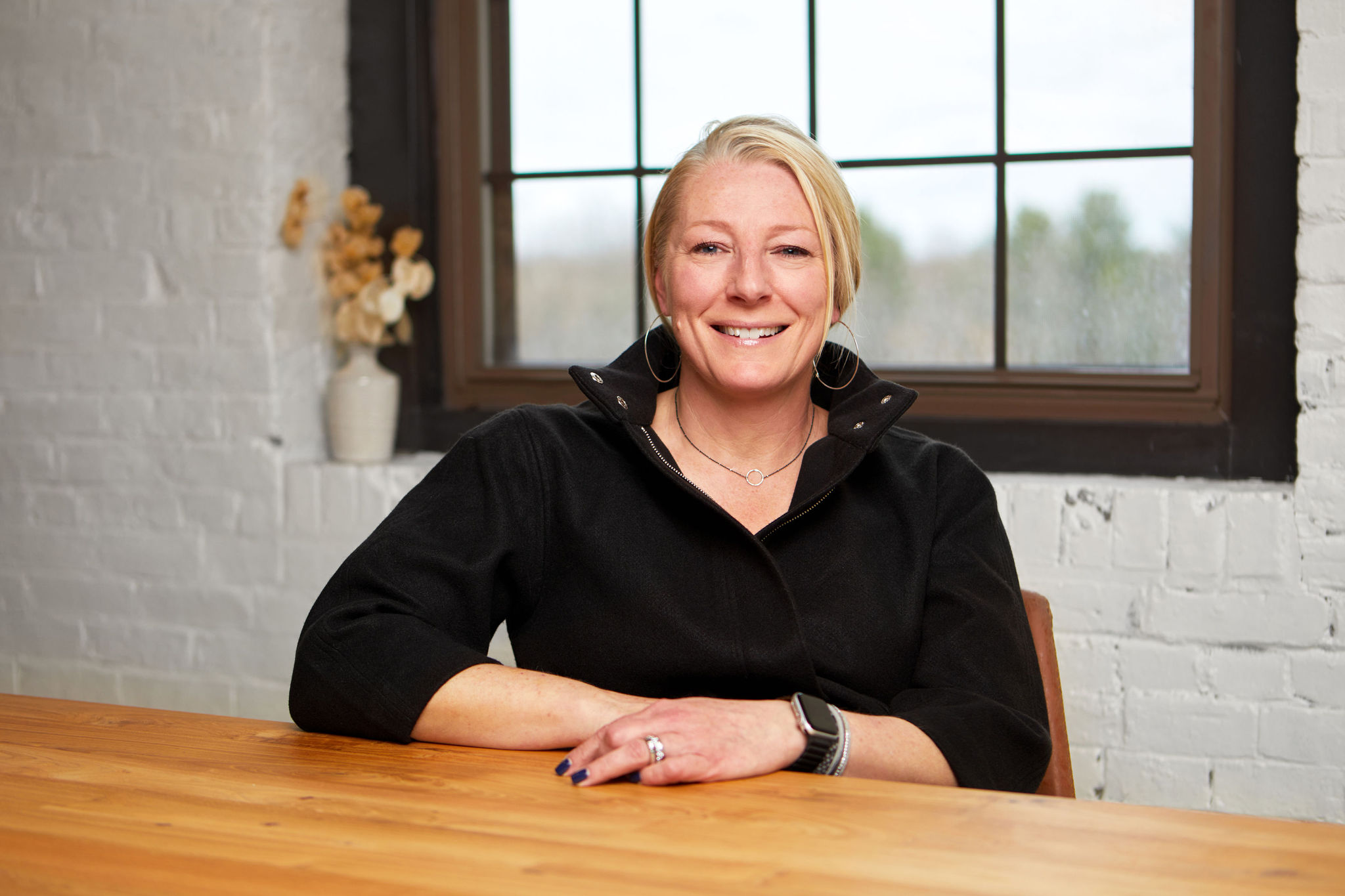We’re excited to introduce you to the always interesting and insightful Lauren Belliveau. We hope you’ll enjoy our conversation with Lauren below.
Lauren, appreciate you joining us today. We’d love to hear about how you went about setting up your own practice and if you have any advice for professionals who might be considering starting their own?
Since I can remember, I have wanted to have my own business, For over 20 years, I worked in health care, primarily working with health systems and physician practices to reduce cost and improve care quality. I worked with health care providers across the country, big and small, across specialties. This work gave me the perspective I am now grateful for, and draw upon every day.
The most important steps I took when setting up the practices was to focus on our mission, bringing cutting-edge interventional psychiatry treatments to New Hampshire and to bring providers to care for our patients that support this vision. All of our providers are not only talented and excellent clinicians, but they care for all of our patients in ways that go above and beyond. This shows, as the clinics surpass the published expected outcomes data for the treatments we provide.
I think if you ask anyone who starts their own private clinic what they would do differently knowing what they know now, everyone would have a long list. And I am no different. If I had to pick one, though, I would say that I wish that I had “taken the leap” sooner. I stayed in corporate America longer than I needed to, thinking that it was more secure and “safer” somehow. The runner up to what I wish I had done differently is simply that I wish I had been more focused on keeping most of our key functions in house. No one, and I mean no one will be as focused on the success of your clinic more than you. So I am now focused on bringing most key functions in house.
The best advice I ever got when I started our practice was from a book I read on entrepreneurship, I followed it, and I will pass it on here: Start small: whatever that means to your situation, figure out how to start small. For us, we rented one room in a building and bought only the necessary equipment to provide the treatments. Once we had a sense of it, we expanded and after three years, opened our second location. Being an entrepreneur is scary enough. Minimizing risk helps keep you focused and drive growth in a focused and measured way.

Great, appreciate you sharing that with us. Before we ask you to share more of your insights, can you take a moment to introduce yourself and how you got to where you are today to our readers.
I started my career working at Peace Corps and always felt strongly that what I wanted to do was “make a difference.” When I decided to go back to graduate school, I focused on schools that would help me combine my interests in business with my interest in helping people and I found that at the Harvard T.H. Chan School of Public Health. I received a degree in Health Care Management and went on to work for various large companies that, in one form or another, helped provider organizations use technology to engage patients and deliver higher quality care.
My husband is a Board-Certified Adult Psychiatrist and has been in private practice for over 20 years. We live in New Hampshire, where there is a shortage of many specialists including psychiatrists. In 2016, Dr. Belliveau heard about a treatment for depression that had impressive outcomes, well beyond those of traditional antidepressant medications and/or therapy. This treatment is called Transcranial Magnetic Stimulation (TMS). TMS is a non-invasive procedure that uses magnetic pulses to stimulate nerve cells in the brain. The pulses create small electric currents that impact the firing patterns of neurons. This supports brain patterns and regions of the brains that are thought to be less active during depression. About 50% of people diagnosed with depression are ‘Treatment Resistant,’ which means that after trying two or medications, they continue to feel depressive symptoms. What is amazing about TMS is that the data show that it helps 70-80% of patients in getting relief from their depression, versus less than 17% finding relief from a third medication trial. So, in 2016, Dr. Belliveau began recommending to a few of his patients that they get TMS treatment. The problem was that it was difficult for his patients to get the treatment, because the only place to get the treatment at the time was in Boston, which for many of his patients was too far to travel.
In 2019, we decided to bring TMS to New Hampshire and we never looked back. We started small, but have now completed over 19,000 TMS treatments, bringing many people relief from their depression that they have lived with for years, if not decades. To answer your question “what I am most proud of” is that Dr. Belliveau and our team have grown the practice to be the largest private interventional psychiatry practice in the state. We work hard to make sure everyone that needs these treatments can get them, because they are lifechanging for many. One of the biggest barriers we encounter is that about 90% of people in New Hampshire get their psychiatric care from their primary care providers. Primary care providers can be overwhelmed with the needs of their patients and are often not aware of interventional psychiatry treatment options. So we spend a lot of time working collaboratively with providers in our community to help as many of their patients as we can.
We often hear about learning lessons – but just as important is unlearning lessons. Have you ever had to unlearn a lesson?
I touched on this earlier, but I will address this in more detail now. When you work in “business,” especially consulting, you often learn that any business, big or small, should focus on their core business and outsource non-critical business functions. So in the beginning, I did what I had seen done in most, if not all of the practices I had seen in my career. I focused on making sure we delivered a great patient experience with the highest quality of care, and I used outside agencies to do things like billing, credentialing and marketing.
Either I had to unlearn this lesson, or I need to redefine what is considered non-essential in a health care practice. So, over the last two years, I focused on building the internal capabilities for these functions. I focused first on marketing and patient acquisition. Of course this meant, through trial and error, that I had to find the right team, but I now spend less on marketing and the quality of our education and marketing efforts is bringing in outstanding results. No one, and I mean no one, understands who we are and what we do, better than we do. Second, most healthcare organizations outsource their billing. It is very common thinking, when you work at a provider in the clinical setting, that billing is nothing but a headache and too complicated to understand. It took almost a year (and we are not done yet), but my team has successfully built billing and credentialing capabilities, and we are experiencing a much lower denial rate, better contracted rates and better accounts receivable than ever before.

Other than training/knowledge, what do you think is most helpful for succeeding in your field?
I think the most helpful thing in succeeding in both private healthcare practice and delivering innovative health care services is to remain focused on the patient. In my corporate career, whenever we were not sure what to do, or how to advise a client, I always asked my team, “what is the best thing for the patient?” Even if the problem didn’t seem to directly impact the patient, if you do it right, everything, and I mean everything you do in your practice should be supportive of the patient’s experience or clinical outcomes. We stick to this, and so far, it has worked.
Contact Info:
- Website: https://www.ipcmentalhealth.com
- Instagram: @innovativepsychiatrycenter
- Facebook: innovative psychiatry center inc
- Other: tiktok: InnovativePsychNH



